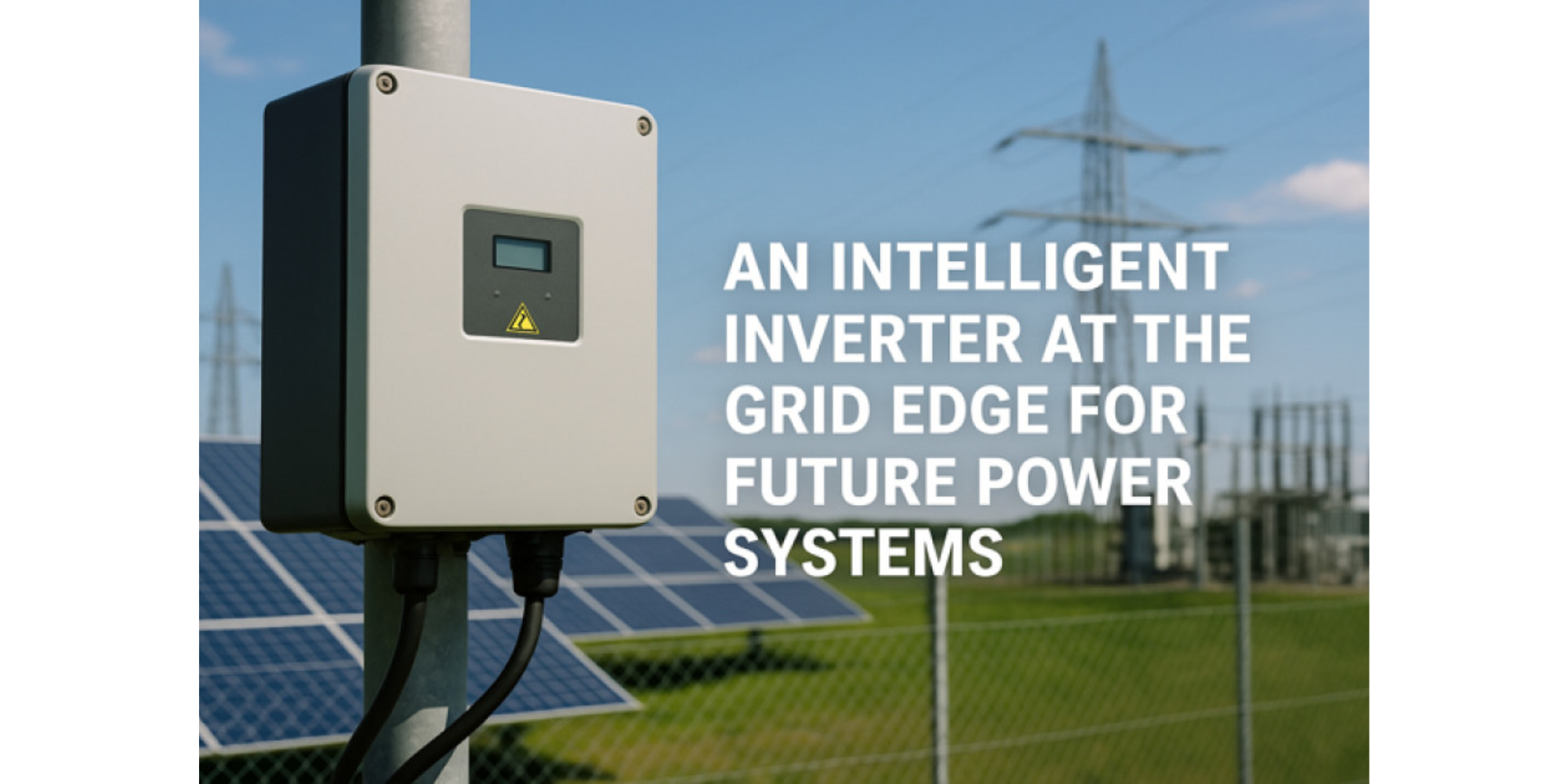*Lecturer Researcher Dr. Lenos Hadjidemetriou,
KIOS Research and Innovation Center of Excellence, University of Cyprus
Decarbonising the energy sector is a fundamental prerequisite for promoting sustainable development and achieving climate neutrality. As the penetration of dispersed renewable energy sources increases, especially at the grid edge, distribution networks are faced with increasingly complex operational challenges. The difficulties are particularly acute in low-voltage grids, where a large number of consumers and decentralised energy resources are concentrated. In this dynamic environment, system operators are called upon to manage challenges with limited possibilities to intervene due to the lack of flexible activation mechanisms, insufficient communication infrastructure and the difficulty of managing millions of end-users.
The INVERGE research project of the Centre of Excellence for Research and Innovation “Coios” of the University of Cyprus, responding to the challenges of the modern energy landscape, developed an innovative approach by transforming conventional inverters used to connect photovoltaic or storage systems to the power grid into multifunctional devices with active grid support capabilities. These smart devices can operate autonomously and actively contribute to grid management, bringing flexibility and resilience to modern power distribution systems.
Main results of the project
The innovations developed through the INVERGE project cover three thematic axes. The first concerns the development of smart inverters equipped with advanced control strategies and diagnostic tools that can enhance grid stability and reliability. These include:
- A new multifunctional controller for inverters that allows distributed generation to contribute to the stable operation of the power system, either by following the grid (grid following), forming the grid (grid forming) or simulating the operation of a virtual synchronous generator.
- A new strategy to support grid voltage and frequency during short-circuits that enhances stability in low inertia grids.
- Mechanisms for asymmetry balancing, reactive power support and inverter thermal management that improve grid power quality and extend inverter lifetime.
The third axis focuses on optimising energy management for distributed renewable energy and smart buildings. In this context, the following were developed:
- A digital solution for cost-optimal management of renewable energy sources and energy storage systems in buildings, extending battery life.
- A hybrid modelling of building thermal behaviour for accurate prediction of indoor temperatures and economic energy management.
- A high-precision digital twin for smart buildings that integrates data on energy consumption, thermal behaviour and indoor air quality to evaluate control strategies and optimise system operation.
INVERGE’s innovative solutions have been published in 5 scientific journals and presented in 7 international conferences, in areas such as energy management, smart grid control and cybersecurity. Beyond its scientific contribution, the project has paved the way for new research projects such as HYNET, OMRES, TwinEU, ePowerMove, OptimRES, ANTS, GridGnosis and 6G-versus, which will apply and evaluate INVERGE methodologies in real environments, increasing their functionality and technological readiness.
The innovations developed in the INVERGE project lay the foundations for more autonomous, intelligent, resilient and environmentally friendly electricity grids, contributing to global efforts towards climate neutrality and fossil fuel decarbonisation.
Source: University of Cyprus | Latest news (https://tinyurl.com/2vfw64wj)
